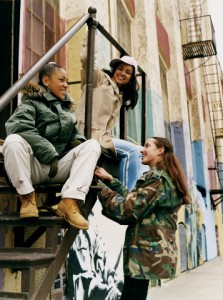Disadvantaged Black adolescents are disproportionately afflicted by sexually transmitted disease transmission, dating violence, trafficking, and unplanned pregnancy. Social services need better tools and understanding to address these issues. Moreover, disadvantaged African American adolescents have been significantly underrepresented in mental health, social services, and best practices research, so existing evidence-based practice models are insufficiently inclusive of these adolescents’ perspectives. What can be done to remedy this?
In a recent issue of the journal Social Work, published by NASW Press, researchers reported on findings from a study of a youth-led, participatory action–based summer and after-school program, “Love Your Love Life” (LYLL). LYLL is the first sexual and romantic health services program designed and co-instructed with disadvantaged African American adolescents. Over eight successive semesters, 155 African American adolescents authored instructional materials including a guide to dating, a documentary, a workbook, a PowerPoint presentation, social media messages, and skits, and then led seminars for their peers. The highly engaged adolescents contributed valuable information about their strengths, challenges, and preferences, and suggested improvements to make sexual and romantic health curricula more relevant for their peers.
The study reviewed the peers’ co-created program, and noted the topics that were of interest to disadvantaged Black adolescents, and their own creative ways of dealing with the issues raised. Some of the issues the adolescents addressed were:
- Trust
- Accurate sexual knowledge – sorting myths from facts
- Teen pregnancy
- Family and partner violence
- Gender, gender roles, and sexual orientation
- Defining rights
- Confiding in others, whether adolescents or adults
The researchers found that having the Black adolescents involved in co-creating the curriculum for LYLL helped them not only reach the adolescents and address their issues, but also allowed the adolescents to feel more engaged with the process and the results, increasing their knowledge on vital issues of sexual health, relationships, and violence, and refining a curriculum that could be useful to other at-risk teens. The researchers conclude:
For social workers to be most effective in addressing romantic and sexual health problems that disproportionately affect African American adolescents, the adolescents need to be included as codesigners, coinstructors, and coevaluators of their services. Adolescents’ desires for trusting and loyal intimate relationships were intact and passionately held. These ideals and the adolescents’ frankness, resilience, and commitment to services they regard as helpful are significant strengths for practitioners to build on in service provision. As dedicated professionals in social services help at-risk African American adolescents grapple with sexual and romantic health issues, a continued effort must be put forth to design and implement programs that not only include adolescents’ voices, but also focus on the issues most important to adolescents in curricula that adolescents find culturally relevant, comfortable, and accessible.




